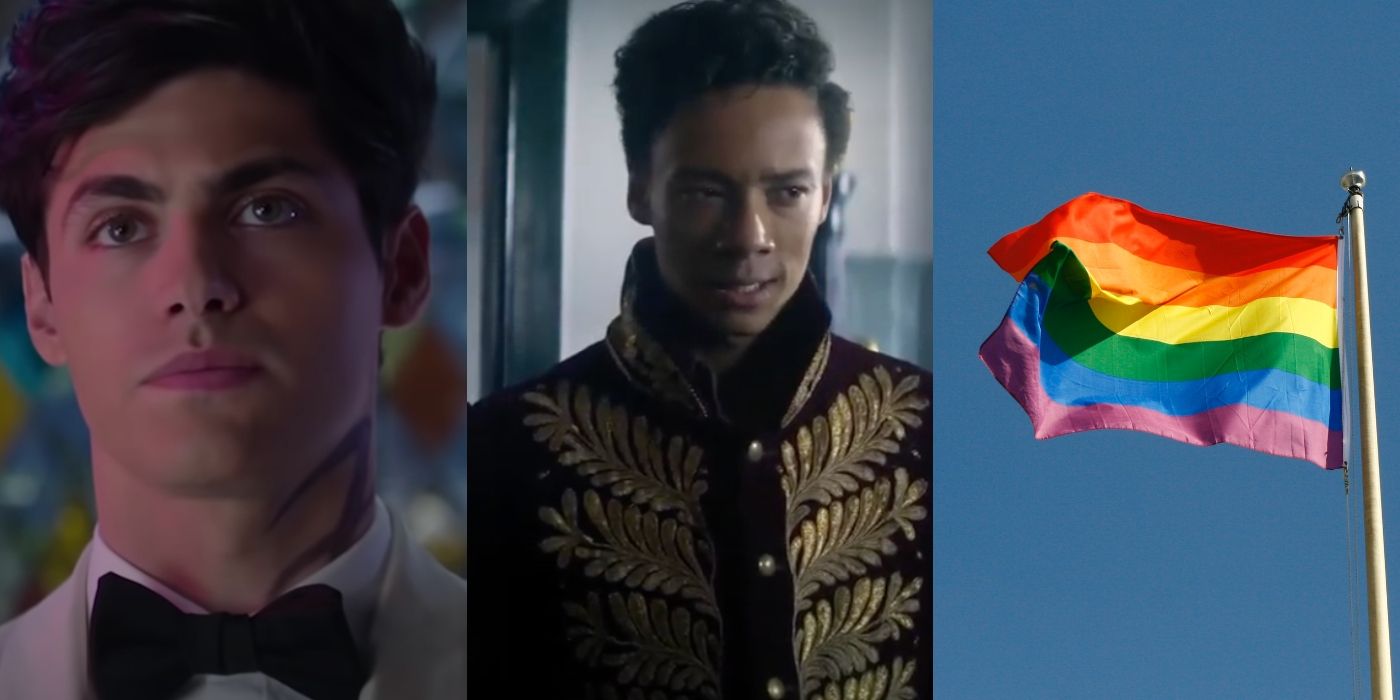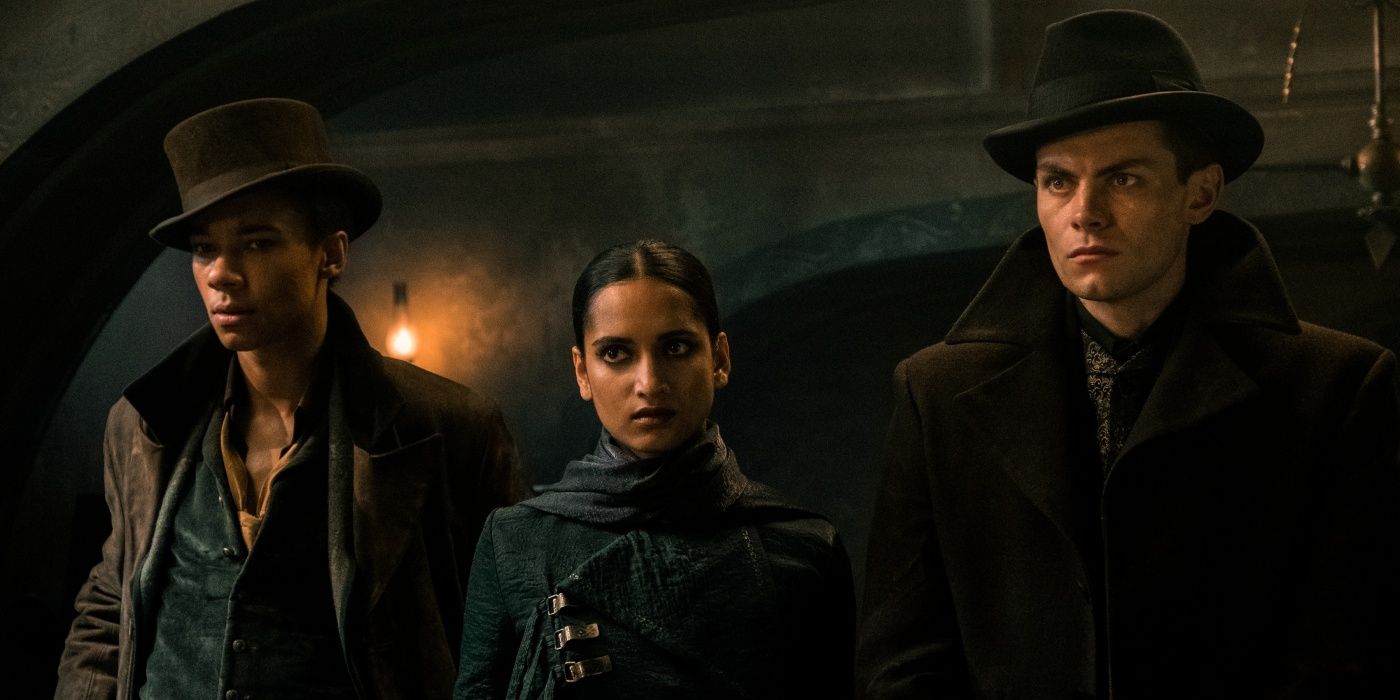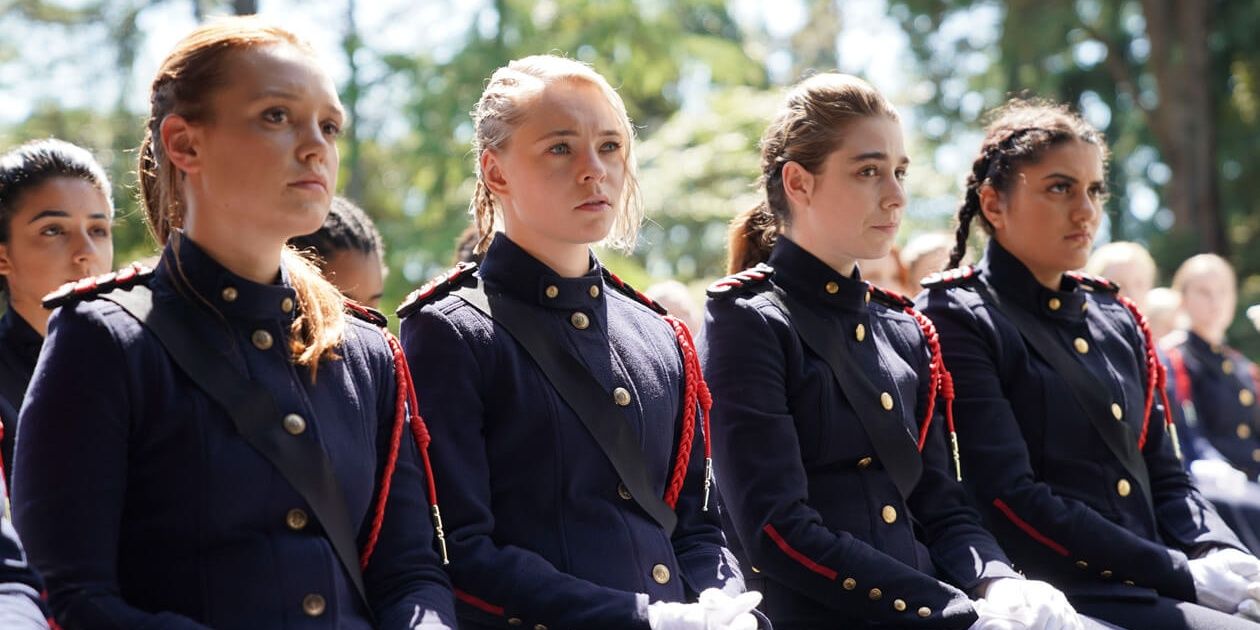Fantasy shows are known for their escapism, their ability to suck their viewers into worlds like and unlike the real world. This escapism does not mean, however, that the characters in these fantasy worlds can't be realistic. In fact, the more realistic, the better. Game of Thrones proved that. The fantasy genre can be just as realistic in its characters as any other genre.
Part of that realism lately has involved showing the world in all its diversity. That includes, of course, writing about LGBTQ+ characters. Shows such as Shadowhunters and Shadow and Bone, and more prove that these characters can be just as lovable as their straight/cisgender counterparts. However, in these shows, the LGBTQ+ characters are secondary characters. Characters such as Alec Lightwood in Shadowhunters or Jesper Fahey in Shadow and Bone are not the main protagonists.
Though Jesper would be a protagonist if the show was called Six of Crows as Shadow and Bone is mainly Alina's story. However, these LGBTQ+ characters' existence within the fantasy genre is proof that LGBTQ+ protagonists could work. After all, these characters are beloved. One of the reasons the fantasy genre might not have had LGBTQ+ protagonists in the past is the worry that audiences wouldn't love them. Characters like Alec and Jesper show that is not the case.
In Shadow and Bone Season 2, the fantasy genre might get another LGBTQ+ character with Jesper's love interest, Wylan Van Eck. If audiences also love this character, it would go far towards proving that LGBTQ+ protagonists could work out well. Another reason there might not be a lot of LGBTQ+ protagonists is the very nature of the fantasy genre. After all, it's about escapism.
That means some people don't want to deal with real-life issues in their fantasy. While that desire is understandable, it is also possible to write LGBTQ+ characters in the fantasy genre without dealing with real-life problems. After all, real LGBTQ+ people aren't solely defined by oppression or issues dealt with. So why should LGBTQ+ protagonists in the fantasy genre be? It makes a lot more sense for fantasy protagonists to continue to be escapists in nature. After all, what's the fun of entering a fantasy world with the same problems as the real one? That's no fun at all. While characters like Alec and Jesper might not be the protagonists of their fantasy shows, they prove that it could work. That audiences can fall in love with LGBTQ+ characters just as easily as their straight/cisgender counterparts.
And neither of these characters, but especially Jesper, are solely defined by their struggles. Jesper, at least in Shadow and Bone Season 1, seems to be a relatively carefree character. Therefore, the escapism that the fantasy genre is known for stays that way. Alec might have his struggles, but they are not all that defines him. He is also a solid and interesting character in his own right. There's also the fear that if an LGBTQ+ character is added to a fantasy story, the character's sexuality or gender will take center stage. This does not need to be true, however. While the fantasy genre doesn't need to focus solely on a character's sexuality or gender, it doesn't need to ignore it either. Something nicely in the middle would be good. Most fantasy fans wouldn't object to that, surely.
So will there be more LGBTQ+ protagonists in the fantasy genre in the future? Hopefully, yes. It looks rather promising. Characters like Alec and Jesper and probably more show that audiences would react well. One show that is already going in that direction is the Freeform series Motherland: Fort Salem. One of the main characters, Raelle Collar, is gay, another character, Raelle's love interest Scylla Ramshorn, is bisexual, and there might be more LGBTQ+ characters coming in season 2. The show is not exactly as well known as stories like Shadowhunters or Shadow and Bone, but perhaps one day it will be. Many Motherland: Fort Salem fans adore Raelle and Scylla's relationship and look forward to more LGBTQ+ representation in the future. And if all of these passionate fans share the love, who knows what could happen?
Diverse stories often draw more viewers to watch, and having LGBTQ+ protagonists is part of diversity. The fantasy genre could use some more diversity. And shows like Shadowhunters and Shadow and Bone prove that these characters can be just as lovable as their straight and/or cisgender counterparts. Shows like Motherland: Fort Salem are definitely a step in the right direction. The more shows add LGBTQ+ protagonists, the better. So what is the entertainment industry waiting for?
Of course, not everyone will agree. Some will prefer to keep their fantasy purely escapism, and that's fine. Yet the representation given by LGBTQ+ protagonists is important to many people. LGBTQ+ characters should be able to be heroes and main characters as often as straight and cisgender characters. Hopefully, TV shows and maybe movies as well will add more LGBTQ+ protagonists to the fantasy genre.



